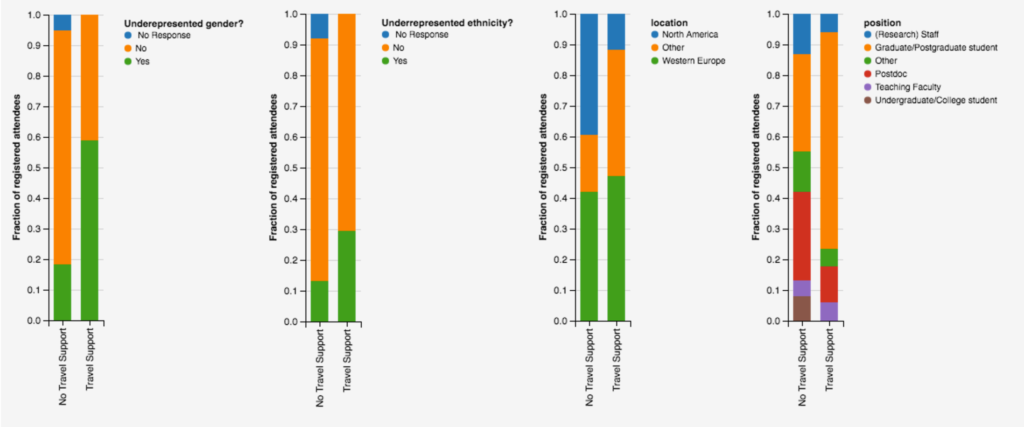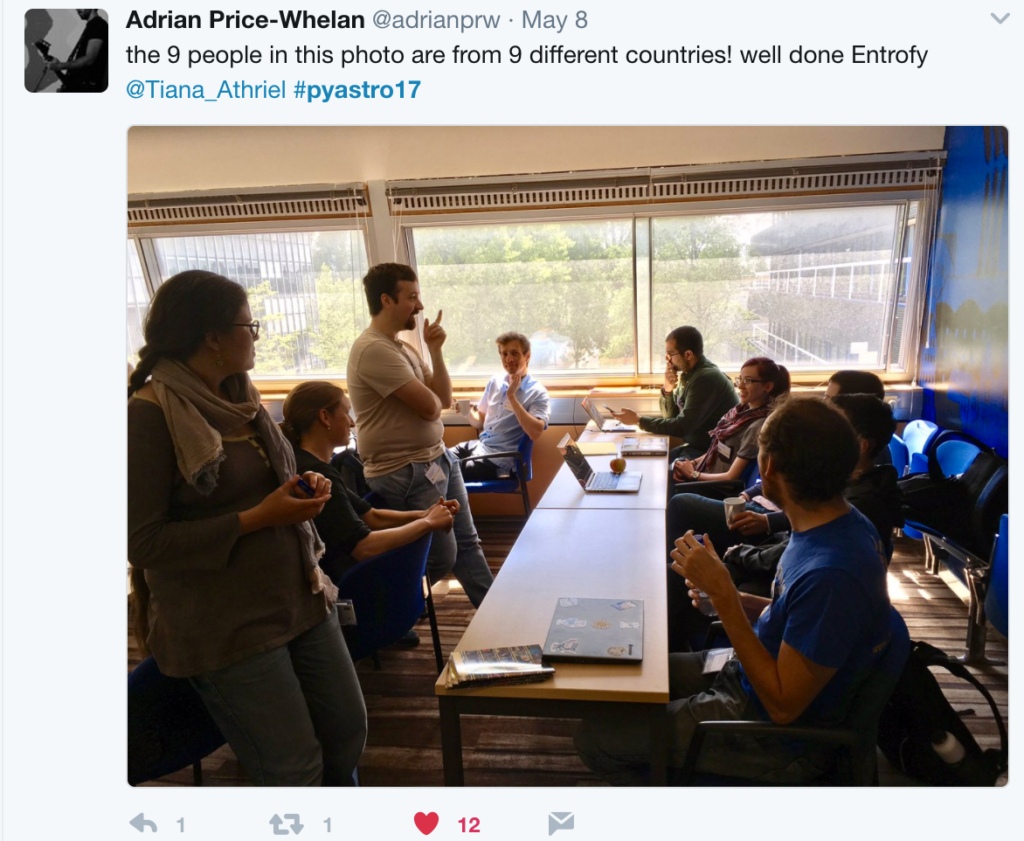Matt Craig was kind enough to share his summary of the recent Python in Astronomy conference, for which NumFOCUS provided a grant. Read on below!
#pyastro17 brought together 54 participants from five continents for a wide-ranging workshop on Python in Astronomy. The workshop was held at the Lorentz Center at Leiden University in the Netherlands. Like previous Python in Astronomy workshops in 2015 and 2016, the workshop was a mix of talks in the morning and “unconference” sessions in the afternoon, with one of the days dedicated to sprints and hacks.
Python in Astronomy conference participants
Talks
One of the fun things about this workshop is the range of astronomical topics, from a talk on archeoastronomy by Eduardo Rodas about using software to model the horizon at archaeological sites to test hypotheses about alignment of structures with astronomical objects (Python is great at non-destructively removing trees, for example) on the first day to M. Emre Aydin’s talk on optimizing python loops the last day.
The keynote presentation by Azalee Bostroem on starting a code review community with her research group nicely captured the spirit of the conference: hands-on learning in the service of building a broader community. Within a week of leaving the conference, Ekaterina Ilin initiated a code review group with her fellow graduate students.
Check out the full list of talks, and watch the Python in Astronomy 2017 site for proceedings with links to all of the talk slides and videos.
Unconference sessions
A typical unconference schedule looked like this:
In late morning, participants proposed ideas, volunteered to help out and voted for the sessions they wanted. These were a mix of tutorials, demonstrations, conceptual discussions and coding sessions. An unconference proceedings is being prepared and will be available soon on the #pyastro17 site.
Hack day
The hack day this year included a huge range of topics; take a few minutes to check out the full list (this is a work-in-progress document, and will be incorporated in the unproceedings). Some highlights:
- at least 15 new pull requests, many by first-time contributors.
- 13 or 14 new repositories created in GitHub (search for the pyastro17 label).
- several packages released for the first time on PyPI.
Want broad participation? Find travel support! (thanks, NumFOCUS!)
One of the goals in selecting the 55 workshop participants out of a pool of over 180 qualified applicants was ensuring a diverse group of people were able to attend. Though diverse in the context meant many dimensions of diversity — more details are in a lightning talk on participant selection with entrofy by Daniela Huppenkothen and Abigail Stevens along with an awesome Jupyter notebook (in a github repository, of course) — there were a few where external funding made a big difference.
Support from NumFOCUS and other organizations provided full or partial travel funding for 17 participants. The charts below summarize the difference that made in four areas: gender, race/ethnicity, geographical location and career stage. In each chart, the bar on the left shows the distribution in those areas for registered workshop participants who did not receive travel support, and the bar on the right has the same information for the participants who received travel support.
The reason external support from NumFOCUS and other groups had an impact on diversity is that many more people in one or more of the categories above required travel support to be able to attend. Roughly 60% of the applicants who did not identify as underrepresented required travel support, but over 80% of those who did self-identify requested travel support.
At the risk of being redundant, travel support made a difference to diversity because almost all of the participants in an underrepresented group needed travel support, not because travel awards were made based on diversity goals.
This was all nicely summarized the second day of the conference in a tweet:
More information (and a plug for #pyastro18)
For a longer write-up and some great pictures, check out this blog post by participant Sophie Murray.
The twitter stream for the conference #pyastro17 is also worth a look. The network of people well beyond conference participants reached via twitter is pretty remarkable:
Finally, keep an eye out for Python in Astronomy 2018, coming soon at https://openastronomy.org/pyastro/2018/


